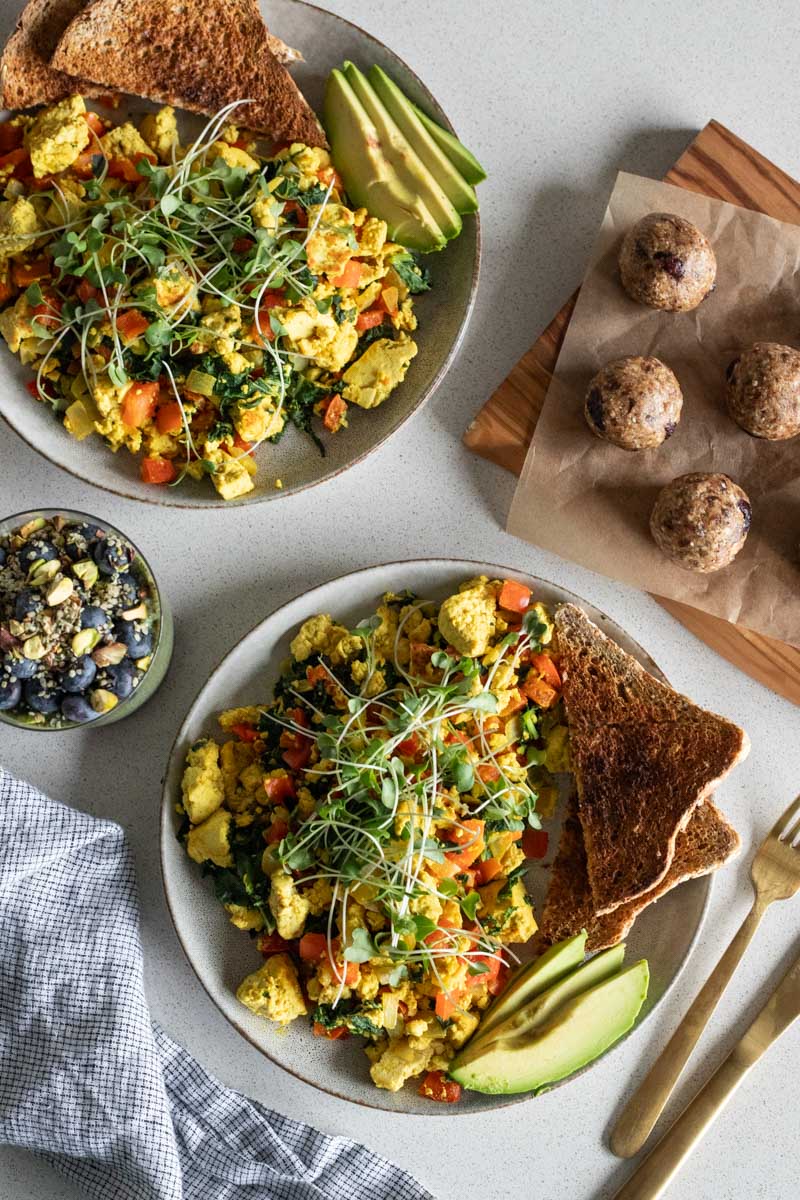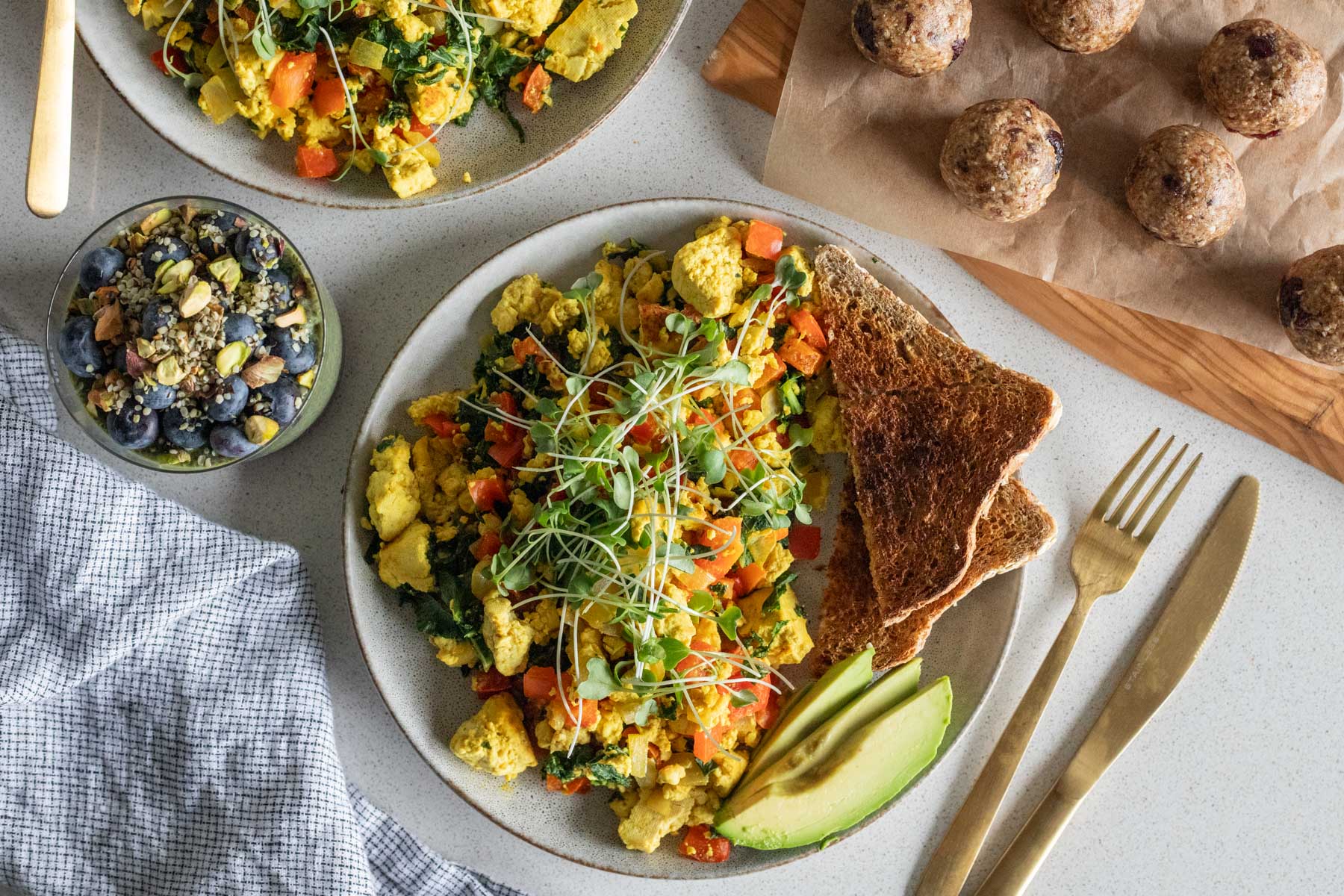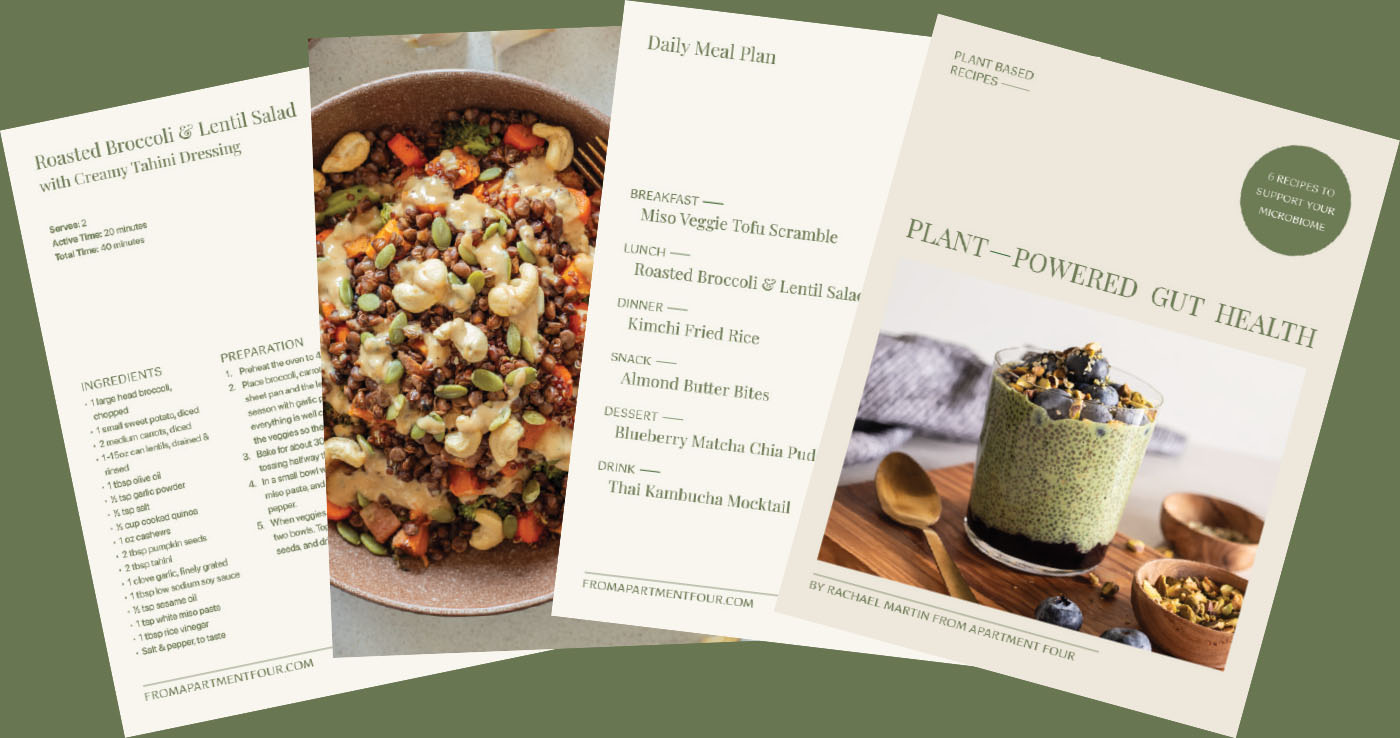Gut health plays a crucial role in overall well-being, impacting digestion, immunity, and even mental health. Dr. Will Bulsiewicz, a board-certified gastroenterologist and microbiome expert is my go-to resource for all things gut health. He emphasizes the importance of fiber-rich, plant-based foods in fostering a thriving microbiome. In this guide, we'll explore the key components of a gut-friendly diet and introduce you to my Plant-Powered Gut Health cookbook, a free PDF download packed with microbiome-supporting recipes.
The Components of a Gut Health Diet
A gut-healthy diet is built on a foundation of diverse, fiber-rich plant foods that support beneficial gut bacteria. The key elements include:
High-Fiber Foods
Fiber is essential for gut health, serving as food for beneficial bacteria. A diet rich in fiber has been linked to improved digestion, reduced inflammation, and a lower risk of chronic diseases. Fiber is exclusively found in plant foods which means fruits, vegetables, legumes, and whole grains are excellent sources.
The American Academy of Nutrition and Dietetics recommends a daily intake of 14g for every 1000 calories consumed, approximately 25g for women and 38g for men, with some experts recommending even higher amounts. However, over 90% of Americans do not even meet the minimum recommendations, only consuming 15g of fiber per day on average. It’s important to note that transitioning from a low fiber to a high fiber diet can result in some abdominal discomfort so it may be beneficial to increase fiber intake slowly over time.
Prebiotics & Probiotics
Prebiotics vs. Probiotics: What’s the Difference?
- Prebiotics are types of fiber that feed beneficial gut bacteria. Plant foods like onions, garlic, leeks, bananas, and asparagus help these bacteria thrive.
- Probiotics are live microorganisms that add to the population of healthy gut bacteria. Fermented foods like kimchi, miso, tempeh, and kombucha are all great sources.
Plant Diversity & Whole Foods
Eating a variety of plant foods promotes microbial diversity in the gut, which is linked to better overall health. Experts recommend aiming for at least 30 different plant foods per week to optimize gut health.
Minimally processed, whole plant foods also provide a variety of nutrients and phytonutrients that contribute to a healthy gut. Processed foods, on the other hand, often lack fiber and essential nutrients, potentially leading to imbalances in the microbiome.
Dr. Will Bulsiewicz’s Gut-Friendly Foods to Eat Weekly
Dr. Bulsiewicz developed this framework to help people incorporate a variety of gut-nourishing foods into their diets. He recommends including the following foods in your diet every week.
- Fruit – Berries, apples, citrus, bananas
- Fermented Foods – Kimchi, sauerkraut, tempeh, miso
- Greens – Spinach, kale, arugula
- Grains – Quinoa, oats, brown rice
- Omega-3s – Flax, chia, hemp seeds
- Aromatics – Garlic, onions, leeks
- Legumes – Lentils, chickpeas, black beans
- Cruciferous Vegetables – Broccoli, Brussels sprouts, cabbage
- Seaweed – Nori, wakame
- Mushrooms – Shiitake, maitake, portobello
A thriving gut microbiome is essential for digestion, immune function, and overall well-being. By focusing on fiber-rich, whole plant foods and incorporating a diverse range of ingredients, you can create meals that support your gut while enjoying delicious and nourishing foods.


